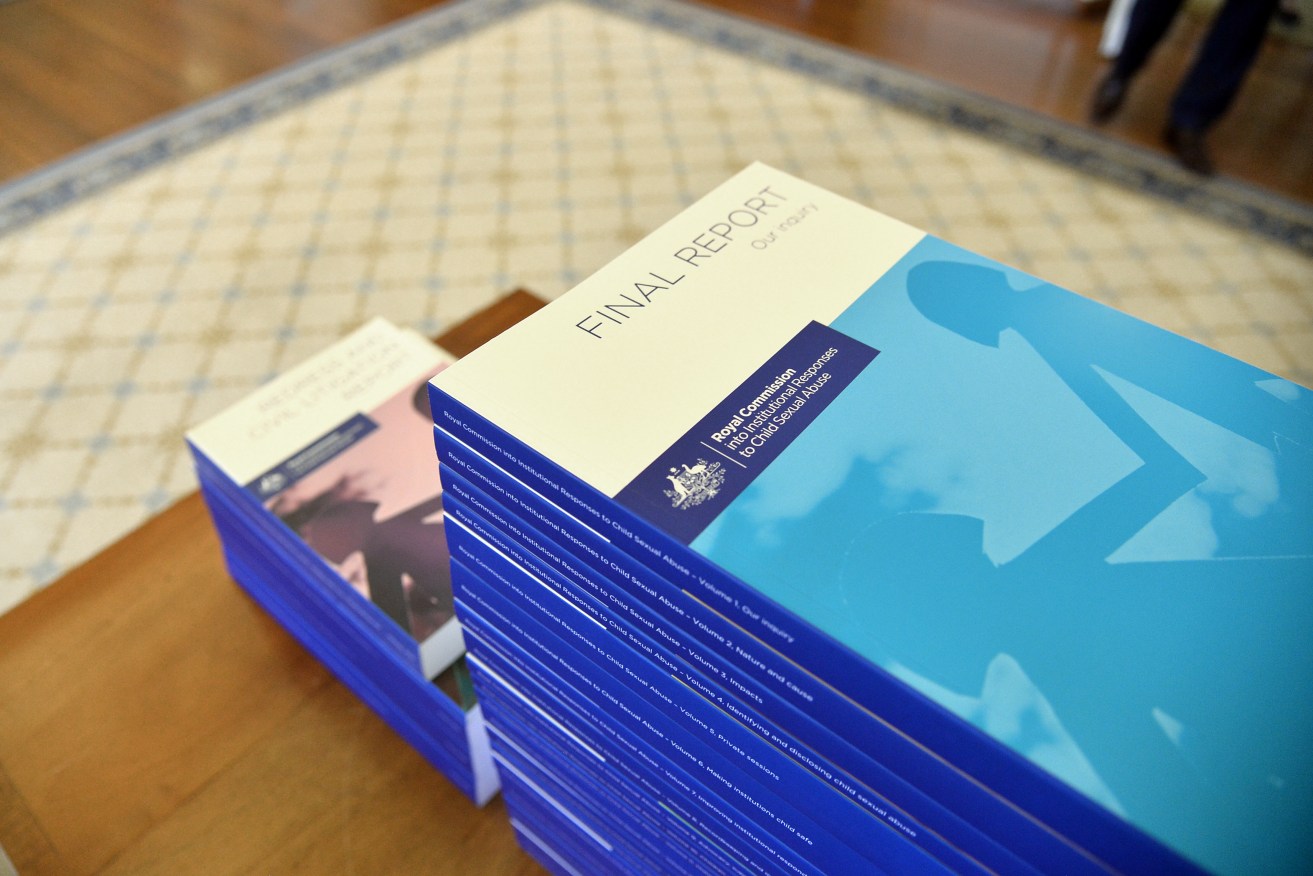Don’t exclude sex offenders from child abuse compensation: Law Society
Sex offenders and people convicted of serious crime should not be excluded from the national redress scheme for victims of institutional child sexual abuse, the Law Society of South Australia says.


The volumes of the Final Report of the Royal Commission into Institutional Responses to Child Sexual Abuse. Image supplied by the royal commission
Late last year, the Turnbull Government introduced legislation to offer survivors of child sexual abuse in Commonwealth or Territory institutions up to $150,000 each in compensation.
The Bill, introduced ahead of the December release of the final report of the Royal Commission into Institutional Responses to Child Sexual Abuse, leaves eligibility criteria for compensation open to ministerial regulation.
Then Social Services Minister Christian Porter said the government would exclude from the scheme people convicted of sex offences and criminal offences with a jail sentence of five years or more.
President of the SA Law Society Tim Mellor told InDaily a strong link had been established between suffering sexual abuse as a child and criminal offending in adulthood.
“There’s a heap of evidence considered by the commission and referred to in its findings to indicate that,” said Mellor.
“Excluding (people) from the scheme because of criminal behaviour (constitutes) excluding them for the very reason that they would have been eligible in the first place. That is, that they have been (subject) to child sexual abuse.”
The society’s views will form part of a Law Council of Australia submission to the Senate Standing Committees on Community Affairs inquiry into the redress scheme Bill.
In October last year, Porter acknowledged that many child sexual abuse survivors commit criminal offences in adulthood and that excluding the group was a difficult decision.
“No-one disputes what the royal commission said, which is that many times people who were the victims and survivors of abuse as a child can often go on, because of those terrible circumstances, to themselves commit wrongs in their life but a view was taken and it was not an easy decision to make,” he told the ABC.
Current federal Social Services Minister Dan Tehan did not respond to InDaily‘s request for comment before deadline.
Mellor conceded that it was understandable for members of the public to feel that sex offenders should not be offered compensation for having themselves been abused as children.
He suggested offering those individuals medical, psychiatric and psychological services, rather than cash, may be more acceptable to the community.
“An alternative might be that an monetary benefit that they might receive would be directed to … psychiatric and healing services,” said Mellor.
He said the justice system “has to be addressing possibilities of improvement in (a criminal offender’s) future through rehabilitation and the like”, adding that a blanket rule for eligibility that excluded a particular category of abuse victim would cause individual injustices.
Even if people convicted of criminal offences in adulthood were to be offered treatment rather than financial compensation under the scheme though, he said monetary compensation may still be appropriate in some cases.
Mellor also objected to the way the Bill is constructed, which allows the government to alter important functions of the scheme, including eligibility criteria, by regulation rather than through Parliament.
“Very important parts of the operation of the Act … have been left for future formulation,” said Mellor.
“Something as important as the eligibility criteria should be (established) up front.
“It’s not nearly as transparent.”
The Federal Government committed $33 million towards the scheme in last year’s budget.
If the law passes, survivors will be able to apply for compensation from July.




